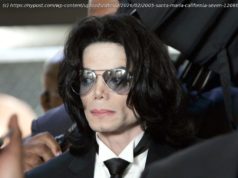Mark 7:31–37.
This morning’s Gospel reading is Mark 7:31–37:
Again Jesus left the district of Tyre and went by way of Sidon to the Sea of Galilee, into the district of the Decapolis. And people brought to him a deaf man who had a speech impediment and begged him to lay his hand on him. He took him off by himself away from the crowd. He put his finger into the man’s ears and, spitting, touched his tongue; then he looked up to heaven and groaned, and said to him, “Ephphatha!”—that is, “Be opened!”— And immediately the man’s ears were opened, his speech impediment was removed, and he spoke plainly. He ordered them not to tell anyone. But the more he ordered them not to, the more they proclaimed it. They were exceedingly astonished and they said, “He has done all things well. He makes the deaf hear and the mute speak.”
Over the last several days, we had a real life example of the need to recall the dignity of people in all sorts of situations. An actor on a television show popular decades ago received an avalanche of unwanted attention after a news outlet discovered him bagging groceries in a supermarket in his community. The tone of the coverage of Geoffrey Owens was condescending and anthropological in a sort of “look how far this man has fallen in life” sort of way. In some ways it felt almost prurient, as though the point was to make ourselves feel better about Owens’ supposed misfortune.
I’ve had a similar experience, albeit more internal than external. During a bout of unemployment thirty years ago, I grew disgusted with being idle and decided to drive a cab to earn money. It didn’t more than a couple of months; it was an unpleasant and occasionally dangerous job, and I eventually took a lower-paying job in a call center. But while I drove the cab, one of my fares ended up being someone I’d known in high school eight years earlier — and the look on his face when he recognized me made me feel shame over my work. Not that he said or did anything to cause it; he was clearly caught off guard and tried to be as gracious as possible after that. In that moment, though, I felt the same way about myself as the world seemed to feel about Owens. And in some small way ( small in more ways than one, I think), I’ve been measuring myself by that moment ever since.
Geoffrey Owens ended up losing his job over the publicity surrounding the story, but he did something different. He stood up for the dignity of honest work, and against the snobbery that ran through the coverage of his job. He may as well have just directly quoted from today’s second reading from James, who warned the early church not to forget the dignity that comes with being children of God, and which surpasses both wealth and station.
For if a man with gold rings and fine clothes comes into your assembly, and a poor person in shabby clothes also comes in, and you pay attention to the one wearing the fine clothes and say, “Sit here, please,” while you say to the poor one, “Stand there,” or “Sit at my feet,” have you not made distinctions among yourselves and become judges with evil designs?
Judging people by their wealth and success uses the worldly definition of dignity, not the Lord’s definition. From the very beginning, our Lord has warned His people to guard and lift up the widows, orphans, and poor as those closest to His heart. In our first reading from Isaiah, the prophet writes that the sign of the Lord’s coming will be the healing of the blind, deaf, mute, and lame. Those signs are a reminder that all have equal dignity before Him, and that we uphold that dignity as a priority as part of our love for the Lord.
The Gospels are filled with miraculous healings of the afflicted. Sometimes the healings are recounted without detail on a large scale, and in other cases — such as today’s Gospel from Mark — we hear the details of an individual healing. It’s easy to reflect on the pragmatic consequences of each healing for the individual involved. Now he can hear and speak, we think, and he can work and be normal. The same for those who are blind, lame, or for the poor which Jesus calls to His table.
However, we should reflect on their constant dignity as well as their changing circumstances. How we treat those who are poor, or disabled, or suffering, should depend on that constant dignity rather than focus on their current circumstances. Jesus came to save us all, and He started with those whom the Lord had instructed about dignity and respect all along. This should remind us that the world’s measurements are not the Lord’s, and that following in the former makes us blind, deaf, mute, and lame to the latter.
Geoffrey Owens wound up getting a role on a new television series, an ending to the story that allowed everyone to feel a little better about what had happened. Owens would likely be the first to tell you that only his circumstances had changed, and that the work he did before was every bit as honest, honorable, and dignified as the work he will do in the future. That is because we have that dignity as children of God rather than through our employment or health circumstances. We should trust in the Lord and his constants, rather than make distinctions over the material issues which matter not a whit in the end.
The front page image is a detail of “Healing of the Blind Man” by Duccio di Buoninsegna, c. 1308, on display at the National Gallery in the UK. Via Wikimedia Commons.
“Sunday Reflection” is a regular feature, looking at the specific readings used in today’s Mass in Catholic parishes around the world. The reflection represents only my own point of view, intended to help prepare myself for the Lord’s day and perhaps spark a meaningful discussion. Previous Sunday Reflections from the main page can be found here. For previous Green Room entries, click here.






